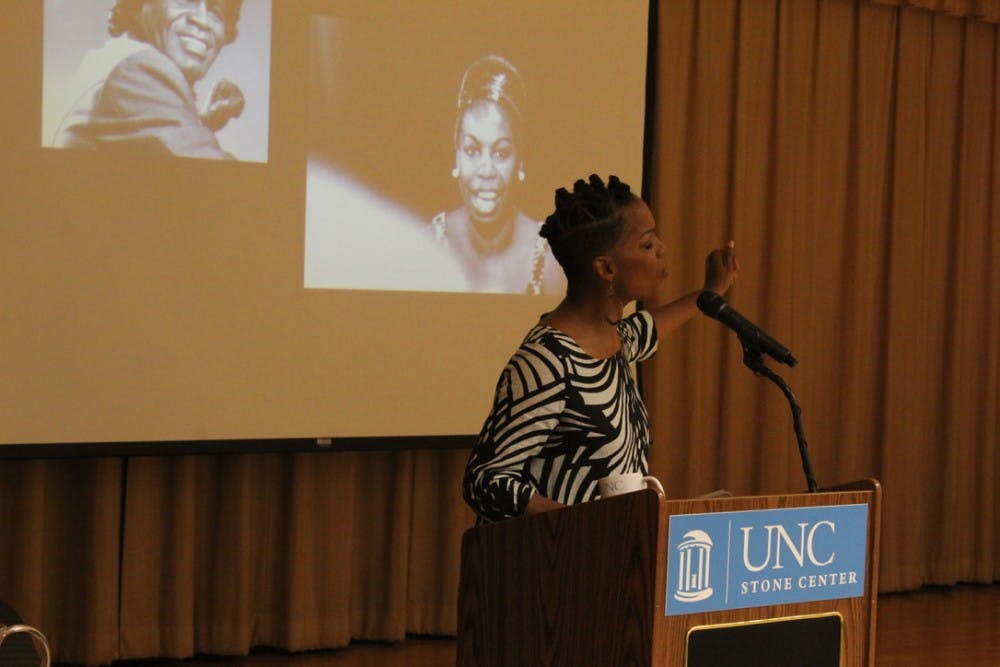Renowned jazz musician Nnenna Freelon spoke Tuesday at the Sonja Haynes Stone Center for Black Culture and History as part of the organization’s 26th annual Memorial Lecture.
Freelon's diverse career includes singing, composing, producing and performing at a myriad of prestigious venues including Carnegie Hall and the 43rd Annual Grammy Awards. Her unique ability to merge arts and activism led the center to choose her as this year’s speaker.
“We have always invited people who have come up with creative ways to address social issues,” said Joseph Jordan, director of the Stone Center. “Most recently and more recently, she has begun to do more performance-oriented work which combines not only her singing but also dramatic presentations, and I think that gives her more of an opportunity to explore social issues, political questions and challenges that we face today.”
Freelon has served as the National Spokesperson for Partners in Education, leads “Babysong” workshops at Duke University Medical Center and is currently renovating a church with her husband, one of the top architects behind the National Museum of African American History and Culture in Washington, D.C.
She almost turned down the opportunity to speak at the event because of her busy personal and professional life and commitment to caring for her husband who suffers from ALS. However, Freelon said Haynes' values resonated with her and convinced her to change her mind.
“Knowing what Dr. Sonja Haynes Stone stood for made me feel a real kindred, you know," Freelon said. "She’s a woman like I’m a woman. She’s struggled with stuff just like I struggled with stuff."
Being a young black woman on UNC's campus in 2018, Calia Johnson, a sophomore who attended the lecture, said she identifies personally with Haynes. She hoped Freelon’s lecture would pay a good tribute to Haynes’ legacy and everything the Stone Center currently stands for and will stand for in the future.
“I definitely think that it’s important to come and support the Stone Center, and Sonja Haynes especially, because she’s so notable on UNC’s Campus," said Johnson.
In the lecture, Freelon told the audience the act of simply existing as a black person in today's society is inherently powerful.



